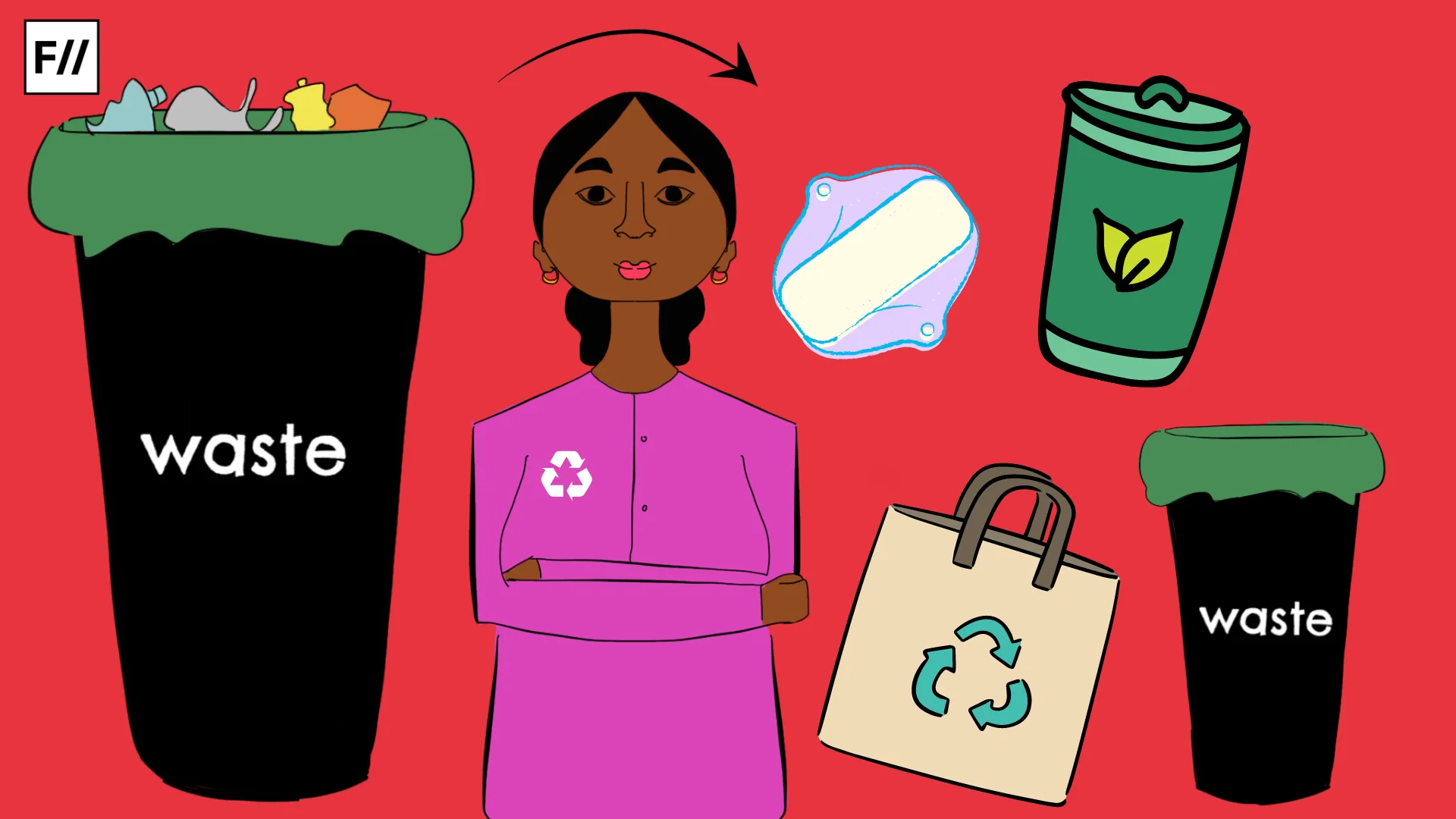Women waste pickers took their concerns in front of the public by performing Nukkad Natak in some of the most popular locations in Delhi such as Lodhi Garden, Select City Walk mall, and Dilli Haat- INA. They spoke about their major concerns including the lack of facilities, exposure to diseases and injury, and exposure to arbitrary harassment in the collection, segregation, and sorting of waste.
The performers showed their day-to-day problems faced in waste picking, such as the absence of identification cards or uniforms which causes arbitrary harassment by citizens, police, and such authorities for interrogation. They emphasised the crucial role they play in the recovery of waste and reducing pollution. The horrors experienced by the open burning of waste and landfill fire were also highlighted in the play showcasing how the waste pickers are severely exposed to toxins.
The women waste pickers addressed serious concerns which include air pollution and health hazards caused by improper management of waste. Topics such as the reduction of landfills, segregation of waste, harassment, health concerns, and the role of the public as well as the waste pickers to make the combined effort in managing waste, as well as reducing their GHG footprint, were all addressed.
The performers were all waste pickers from Safai Sena, a collective of 15000 waste pickers, doorstep waste collectors, itinerant and other small buyers, small junk dealers and other types of recyclers in Delhi.
Also read: The Challenge Of Waste In India: From Environment To Caste
The main occupation of these women is sorting waste that is brought to the home by their family members from the door-to-door collection of waste or from the dhalaos (three-walled concrete structures meant for the collection of garbage from a locality or market). Few women also work as domestic workers for extra income to sustain their households.
The play concluded with the following lines, “Kooda alag karo, kooda alag karo! Khud swasth raho aur prithvi ko bhi swasth rakho!” (translated as segregate waste, segregate waste! Keep yourself healthy and let the earth be healthy too!) In doing so, the Safai Sena members gave a direct message of recycling and reusing materials that would otherwise end up in landfill and showcased the vital contribution they make in the mitigation of climate change.
The women came together to make their voices heard and for the citizens to see the problems they and their family face while working as waste pickers. These performers attracted the crowd with their songs, and claps as well as with the help of a musical instrument- Dhol which helped them to spread the word.
The performers showed their day-to-day problems faced in waste picking, such as the absence of identification cards or uniforms which causes arbitrary harassment by citizens, police, and such authorities for interrogation. They emphasised the crucial role they play in the recovery of waste and reducing pollution. The horrors experienced by the open burning of waste and landfill fire were also highlighted in the play showcasing how the waste pickers are severely exposed to toxins. Open burning of waste releases all kinds of toxic gases, such as methane and carbon dioxide which are huge contributors to air pollution and climate change.
Chintan Environment Research and Action group collaborated with Takhleeq theatre group to support Safai Sena to organise a street theatre (Nukkad Natak) called “Kachre pe Charcha” with the aim to spread awareness on waste segregation to combat air pollution caused by mixed waste being dumped in landfills. The translation of the title itself means “Discussion on Waste” which is exactly what the objective of this play was. Takhleeq also developed the script of the nukkad natak based on the inputs given by the participants, Safai Sena and Chintan.
In the play, the women also suggested the role of plastic pollution and its link to climate change and gave solutions to reduce it. Spreading awareness on segregation of waste in blue, green, and red bins depicting organic, dry, and hazardous waste respectively was one of the main motives of the performers.
Also read: Waste Management And Gender Roles: The Need To Address Systemic Gender Stereotypes
Elements such as diseases, soot, heat, and toxic waste were personified by the actors as they came forward to explain the harm that is caused due to the burning of waste in landfills. The crux of the play was that pollution caused by waste, be it air pollution caused by the burning of waste or plastic pollution affects everyone and the environment, not just waste pickers.
Safai Sena with the support of collectives and theatre groups organised a street theatre (Nukkad Natak) called “Kachre pe Charcha” with the aim to spread awareness on waste segregation to combat air pollution caused by mixed waste being dumped in landfills.
Also read: In Rural Haveri, Women Learn To Drive Swaccha Vahini Vehicles & Manage Solid Waste
The translation of the title itself means “Discussion on Waste” which is exactly what the objective of this play was. Takhleeq also developed the script of the nukkad natak based on the inputs given by the participants, Safai Sena and Chintan.
The play concluded with the following lines, “Kooda alag karo, kooda alag karo! Khud swasth raho aur prithvi ko bhi swasth rakho!” (translated as segregate waste, segregate waste! Keep yourself healthy and let the earth be healthy too!) In doing so, the Safai Sena members gave a direct message of recycling and reusing materials that would otherwise end up in landfill and showcased the vital contribution they make in the mitigation of climate change.
About the author(s)
Alpha Toppo works as the coordinator for the Informal Sector and Environment at Chintan Environmental Research and Action Group, an independent do+think tank, which works to mitigate climate change and environmental pollution and centres the voices of those most vulnerable to its impact.




